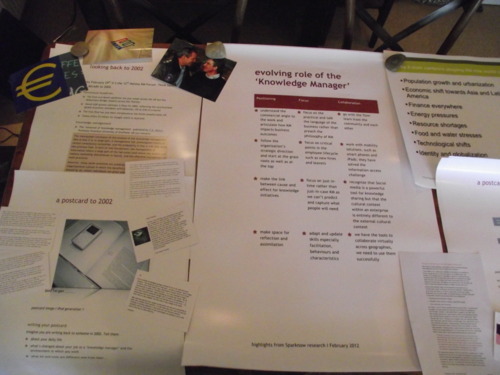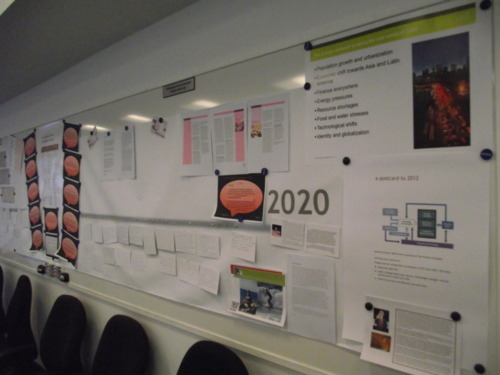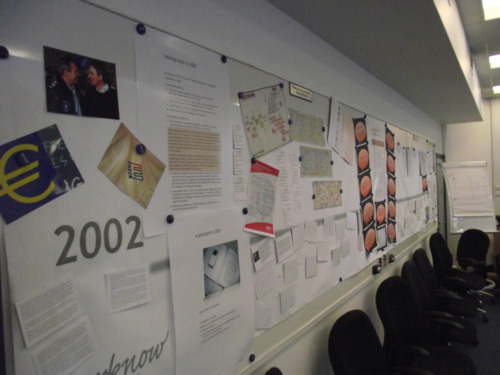Whether Lisboa, London or Tehran the pace of change is gathering apace with increased pressure for improved performance, greater efficiency and reduced risk.
Over the last couple of months I have been working in all three of the above capitals. It has been a priviledge and an eye opener: Iran is eagerly awaiting ratification of the Geneva deal and Tehran is awash with foreign companies looking to position themselves post sanctions; in Lisboa they are feeling the effects of a ‘drawn’ election and in unchartered territory over the formation of a new government and whether to continue with a programme of austerity and; in London there is considerable angst about the impact of cheap Chinese steel on an already depressed commodity market and on local communities.
In each of these capitals the role and standing of the ‘Knowledge Worker‘ is different:
- In Lisboa, many young innovative Knowledge Workers have felt the full force of the austerity programme and fled the country rather than face an uncertain future while the cadre of secure middle managers hang onto their jobs.
- In London, consolidation (especially in the legal sector) is growing and the push to outsource a core part of the UK Government’s drive to reduce the role of the state. Further afield UK Manufacturing continues to be battered by cheaper cost centre imports with inevitable plant closures.
- In Tehran, as they face an openiing up of their market place and an influx of of overseas competition, local knowledge is becoming much in demand and creating a sense of eager anticipation in a workforce that has traditionally sought overseas postings as a way of enhancing their knowledge and careers.
What are the implications?
The role of the informed knowledge worker is going to become more critical and they will need to move up the value chain in order to do so!
If you have not already done so I’d encourage you to look at a recent blog post by Andrew Curry of the Futures Company. The Futures Company has been collaborating with the Association of Finnish Work for more than eighteen months on the idea of “High Value Work”. They define this as work that is productive (it creates new value); that is durable (it creates value over time); and work that is inclusive (it spreads value beyond the business — or the C-suite. This combination, based on the emerging post-crisis literature, also creates work that is meaningful, for employees and customers. They identify four routes to acheiving it:
These are service innovation, based on a full understanding of the customer and their needs; value in authenticity, based on on a full understanding of cultural context; resource innovation, based on a full understanding of material flows; and rich knowledge, based on a full understanding of the technical knowledge held inside the organisation and a method to capture and codify it.
High value businesses combine these; for example, mastery of resource innovation often creates new technical capabilities that lead to new forms of rich knowledge.
Finland is a great example of a country that is highly technological, expensive with a great education system. That it commissioned the work is unsurprising and the findings underpin the growing realisation across many organisations that people matter, are transient in nature and that processes need to be in place to recognise that.
The future role of the Knowledge Worker?
Much of my recent work has been about helping organisations to recognise that if Knowledge Management is to have value above its traditional tactical operational bias there has to be a way of measuring the output (the Intellectual Property ‘IP’ or Knowledge Assets) that is created as a result of the activity. And generating Knowledge Assets is reliant on empowered and stimulated people. As Andrew’s findings suggest ‘Increasingly business research is finding that people drive value.’
Last Friday I hosted a Peer Assist with a group of senior HR thought leaders on People Stimulation an idea being promulgated by Dr Abdelaziz Mustafa of the Islamic Development Bank Group. A very experienced HR Director and core member of the Association of Development Agencies HR Forum he argues the need of a work enviornment that recognises and stimulates:
- Human Imagination
- Individual Discretionary Behavior
- Deeply Embedded Interests
- Self-Knowledge, Self-Accountability and Self-Development
- The One Person Difference
- T.E.A.M Culture
- Happiness at Work
While to many this may seem axiomatic it is indicative of the shifting thinking around the way organisations manage and nurture today’s and tomorrow’s Knowledge Workers.
And finally
On Monday I was at Chiswick for the first meeting of the reconstituted BSI KM Standards Committee established to provide inter alia the UK’s input into the global ISO debate on the need for standards for Knowledge Management. While hugely encouraging that KM is now being more formally recognised it was instructive to see how slowly the wheel of change turns.
Finally if I needed validation of the value of embedding effective Knowledge Management techniques I got it last night in an exchange with a Chinese mentee. In discussion over the knowledge capture interviews I’d helped him to conduct for the charity I am involved with. He said:
‘It is interesting how much good ‘after taste’ after the previous interview techniques and knowlege managemnet tools…conducted a few interviews for my research using the time line map, very effective tool!’
I have asked him to write a guest blog to reflect on some of the knowledge capture techniques we used. Watch this space!



